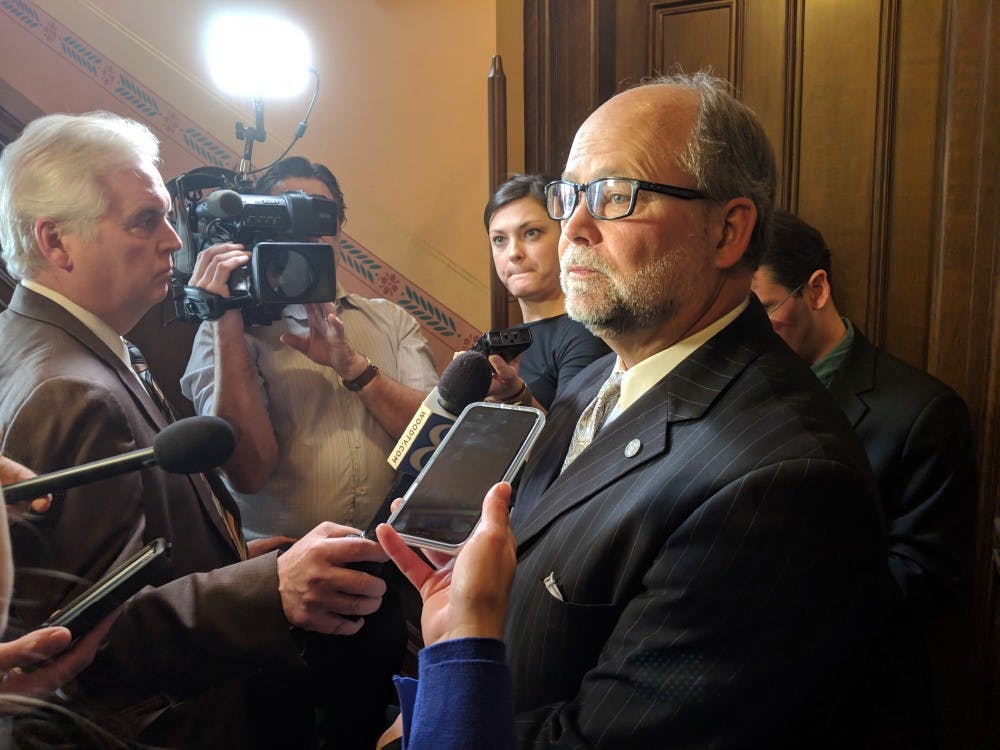Members of the Michigan Senate voted Wednesday to significantly change two pieces of citizen-initiated legislation that the Legislature passed earlier this year.
The two initiatives as originally passed in September would have raised the minimum wage to $12 an hour by 2022 and mandated that employers offer one hour of paid sick time for every 30 hours worked, up to 72 hours of paid sick time per year.
Under the amendments passed Wednesday, the minimum wage increase would be slowed down so as to not be fully implemented until 2030 – eight years after the current law calls for.
Provisions to raise tipped workers’ wages to $12 an hour would also be removed from the law; their wage would be capped at $4 an hour plus tips, with restaurant owners making up the difference if tips and the hourly wage don’t add up to at least minimum wage.
Additionally, the rate at which paid sick time is earned by employees would be slowed, with workers getting one hour of paid sick time per every 40 hours worked, up to 36 hours of paid sick time a year – half the amount they can accrue under current law. Additionally, the law would only apply to businesses with 50 employees or more.
Both amendments cleared the Senate 26-12, with only one Republican — Sen. Tory Rocca, R-Sterling Heights — voting against the bills.
By voting on the initiatives in September, the Legislature kept them off the November ballot. While the Michigan Legislature has adopted ballot initiatives nine times since the state constitution was passed in 1963, amending them later in the same session is a first.
Senate Majority Leader Arlan Meekhof, R-West Olive, said that the process was transparent at every step.
“We were very public about it,” Meekhof said. “We put it right out there in committee.”
Senate Minority Leader Jim Ananich, D-Flint, said Republicans waited until after the election to announce their plans because they feared voter retaliation.
“I think one of the troubling things is that they dropped the bills the day after the election. Obviously, they had these bills in the works all summer long, and they didn’t have the courage to show the voters what they were planning on doing,” Ananich said. “There’s no need to rush unless you have a plan in place that is not necessarily in the best interest of the citizens of Michigan.”
Former Michigan Democratic Party Chair Mark Brewer, an attorney for both ballot proposal campaigns, previously said that One Fair Wage – which backed the minimum wage proposal – would be willing to go to court if the Legislature amended the proposal.
Sen. Curtis Hertel Jr., D-East Lansing, said amending the initiatives breaks decades of precedent dating back to 1964. Then-Attorney General Frank Kelley said that year amendments to ballot initiatives could occur in at a legislative session subsequent to the one in which the initiatives passed.
“That precedent set in 1964 has stood for half a century. For 54 years, respect for the people, their Democratic rights, has been held sacred in this body. Unfortunately, that ends today,” Hertel said.
Meekhof said there is nothing in the state constitution barring them from amending the bills, and said Kelley's opinion is nothing more than just that: an opinion.
“There is nothing in the constitution that prohibits us from this kind of action,” Meekhof said. “Attorney General Kelley’s opinion from 50 years ago doesn’t even reference a case. It doesn’t reference the constitution; it’s just his opinion.”
The amendments now head to the House of Representatives for consideration. Votes on the bills have not yet been scheduled in that chamber.
Support student media!
Please consider donating to The State News and help fund the future of journalism.
Discussion
Share and discuss “Senate passes amendments to minimum wage, paid sick time initiatives ” on social media.







